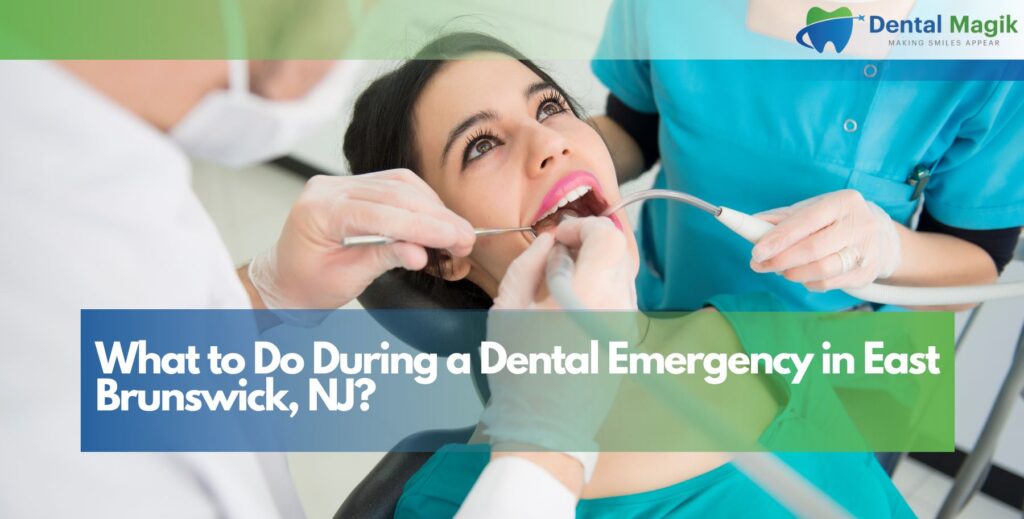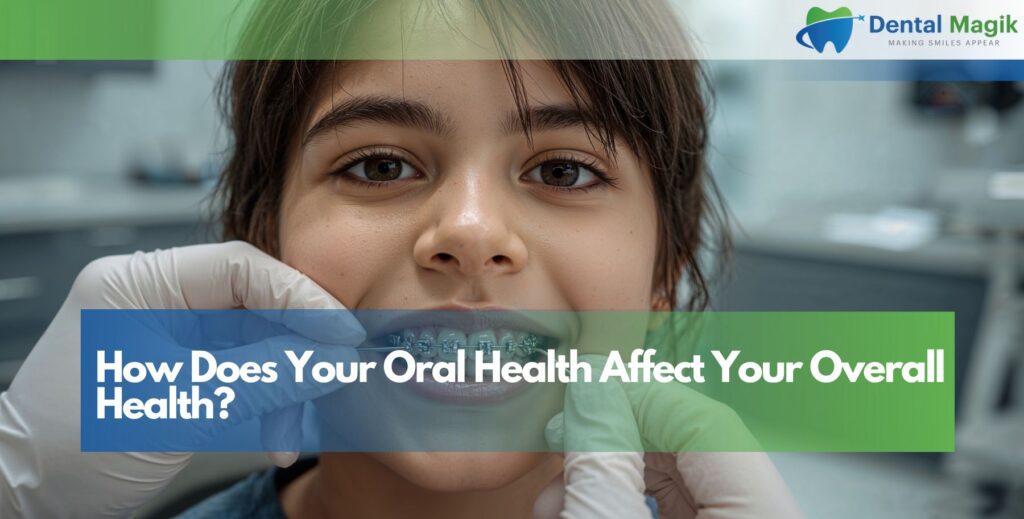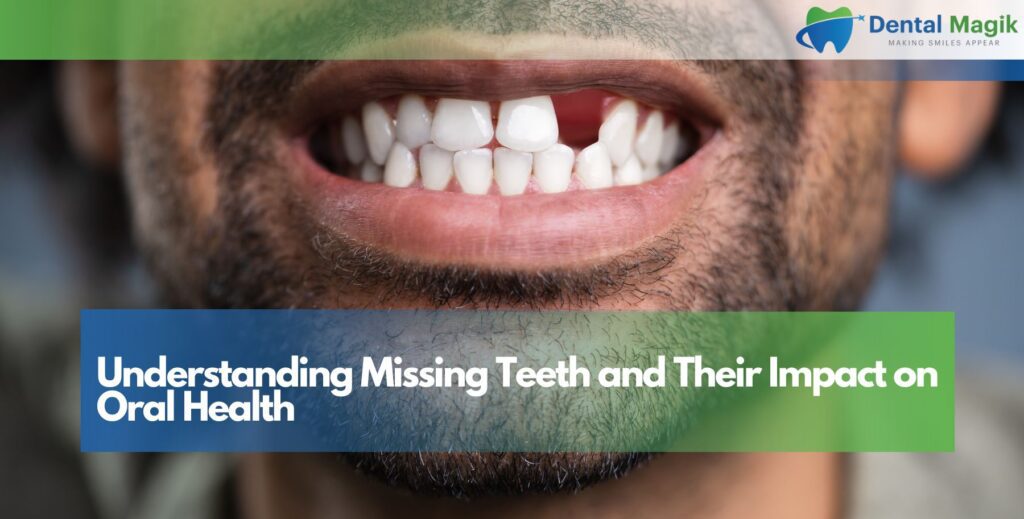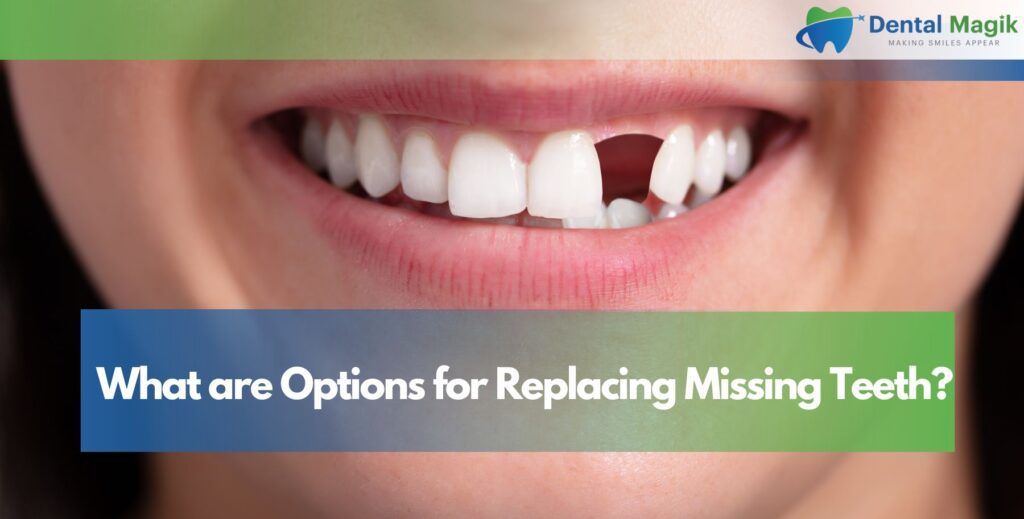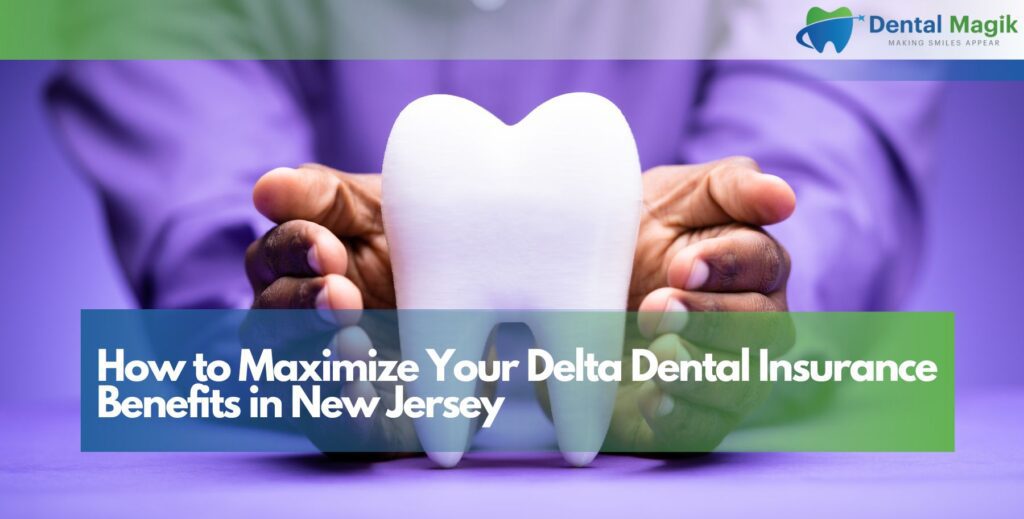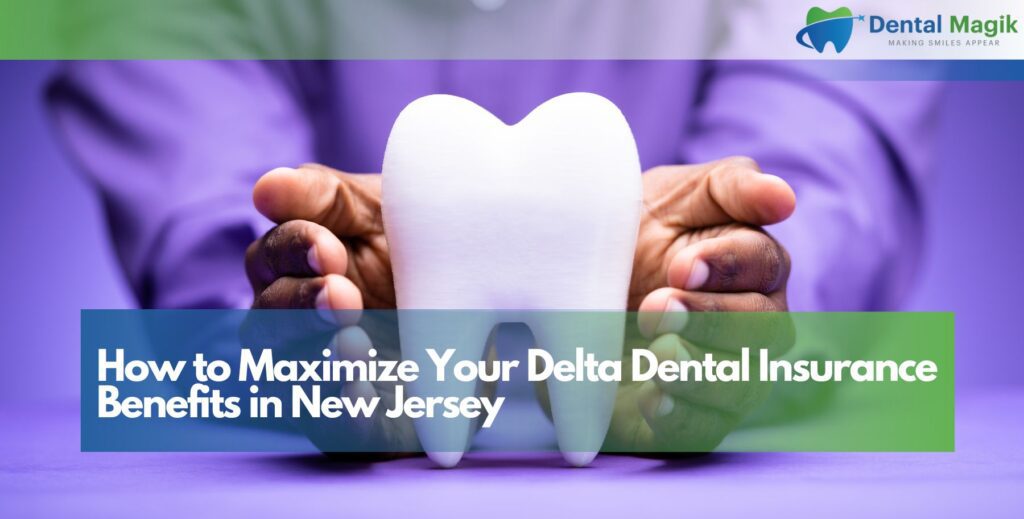A dental emergency can happen anytime — a sudden toothache, a broken filling, or a knocked-out tooth can cause pain and panic. Knowing what to do in these moments can make the difference between saving or losing a tooth. Whether it’s an injury, infection, or swelling, acting quickly helps reduce pain and prevent further complications. In this complete guide, you’ll learn how to handle the most common dental emergencies safely before you reach your dentist in East Brunswick for treatment.
Table of Contents
Understanding Dental Emergencies
Dental emergencies are any oral health issues that cause sudden pain, bleeding, or damage requiring immediate attention. These include broken teeth, knocked-out teeth, severe toothaches, infections, or injuries to the gums or jaw. Some conditions may seem minor at first but can worsen quickly without prompt care. Identifying what qualifies as a dental emergency helps you respond properly and avoid permanent damage. Always contact an emergency dentist when pain or bleeding is severe or constant.
Why Quick Action Matters in Dental Emergencies
Acting quickly during a dental emergency can prevent complications like infections, bone loss, or tooth extraction. The mouth heals fast, but bacteria also spread rapidly, which can turn a small injury into a serious problem. Immediate first aid, combined with contacting your emergency dentist, ensures you get timely relief and avoid long-term damage to your teeth or gums.
Common Types of Dental Emergencies
Different emergencies require different responses. From sudden pain to visible trauma, understanding the most frequent types of dental issues can help you react correctly. Some of the most common include toothaches, chipped or broken teeth, knocked-out teeth, lost fillings, and abscesses. Recognizing the symptoms early allows you to take the right steps before seeing your dentist for professional treatment and care.
Severe Tooth Pain or Toothache
A toothache is one of the most common dental emergencies and can be caused by cavities, infections, or cracked enamel. Start by rinsing your mouth with warm water and floss gently to remove debris. Avoid applying aspirin directly to the gums as it can cause burns. Over-the-counter pain relievers and cold compresses help reduce pain and swelling until you can reach your dentist. If pain persists beyond 24 hours, it may signal an underlying infection that needs urgent attention.
Knocked-Out Tooth
A knocked-out tooth (also called an avulsed tooth) requires immediate action. Pick up the tooth by the crown, not the root, to avoid damaging tissue. Rinse it gently with water without scrubbing. If possible, place it back into the socket or store it in milk or saline solution. Getting to the dentist within 30–60 minutes significantly increases the chances of saving the tooth. Prompt re-implantation helps preserve natural structure and prevents costly restorative treatments.
Chipped or Broken Tooth
If you chip or break a tooth, rinse your mouth with warm water and save any broken fragments. Use gauze to stop bleeding and apply a cold compress to reduce swelling. Avoid chewing on the injured side. Even small chips can expose tooth nerves, leading to infection or decay. Seeing your dentist in New Jersey quickly helps restore the tooth with bonding, veneers, or crowns, depending on the damage’s extent.
Lost Filling or Crown
A lost filling or crown exposes sensitive tooth layers, leading to pain and further decay. If a crown falls out, clean it and try to reattach it temporarily using dental cement from a pharmacy. Avoid using glue or adhesives. Call your dentist immediately to have it professionally replaced. While waiting, chew on the opposite side and avoid sticky foods. Getting prompt care prevents nerve exposure and the need for root canal treatment later.
Dental Abscess or Infection
A dental abscess is a painful infection at the tooth root or gumline. Symptoms include swelling, severe pain, fever, and a bad taste in your mouth. Never try to pop or drain an abscess yourself — it can spread infection to other parts of your body. Rinse with warm salt water to relieve pressure, take pain medication if needed, and seek immediate dental care. Abscesses are serious and can become life-threatening if untreated.
Bleeding Gums or Oral Injuries
Injuries to your lips, gums, or tongue can cause heavy bleeding. Clean the area gently with water and apply pressure using sterile gauze for 10 minutes. If bleeding continues, apply a cold compress and contact your dentist or an emergency clinic. Persistent gum bleeding could also indicate gum disease or other underlying health problems that require professional evaluation and treatment.
Immediate Steps to Take Before Reaching the Dentist
Handling a dental emergency calmly and safely is key to preventing further complications. Knowing basic first aid for common scenarios gives you confidence to act quickly while waiting for professional help.
Control Bleeding
Apply gentle pressure using clean gauze or a damp cloth to stop bleeding. Replace the gauze every few minutes until bleeding subsides. Avoid aspirin as it can thin the blood and worsen bleeding. If bleeding continues for more than 15 minutes, contact an emergency dentist or visit an urgent care facility immediately.
Reduce Pain and Swelling
Use a cold compress or ice pack on the outside of your mouth for 15–20 minutes to minimize pain and swelling. Over-the-counter pain relievers like ibuprofen help reduce discomfort. Avoid placing ice directly on the tooth or gums. Managing pain early prevents inflammation from worsening before you reach your emergency dentist.
Save Damaged or Dislodged Teeth
If a tooth, filling, or crown comes loose, handle it carefully. Store it in a moist environment — preferably milk or saline — to preserve tissue. Avoid wrapping it in tissue or exposing it to dry air. Bring it with you to the dental office, as reattachment is often possible if handled correctly and quickly.
Avoid Eating or Drinking on the Affected Side
Chewing on the injured side can worsen cracks, bleeding, or dislodgement. Stick to soft foods like yogurt, mashed potatoes, or soup. Avoid extremely hot or cold foods that could trigger nerve pain. Drinking water helps keep your mouth clean and reduces the risk of bacterial growth.
When to Seek Emergency Dental Care
Some oral problems can wait for a routine appointment, while others require immediate intervention. Recognizing red-flag symptoms ensures you don’t delay treatment that could save your tooth or relieve serious pain.
Signs That Require Urgent Care
Visit an emergency dentist right away if you experience:
- Severe or persistent toothache that doesn’t improve with medication
- Continuous bleeding after 15–20 minutes
- Visible swelling in your jaw, face, or gums
- Knocked-out or loose adult teeth
- Signs of infection such as fever or pus discharge
Ignoring these symptoms may lead to worsening infections, bone damage, or permanent tooth loss.
Where to Find Emergency Dental Services
Most dental clinics offer 24-hour emergency dental services or same-day appointments for urgent cases. If it’s after hours, contact a dentist, or visit an emergency dental clinic nearby. Many hospitals also have emergency dental units for trauma or severe infections. Always call ahead if possible so staff can prepare for your arrival.
Preventing Dental Emergencies Before They Happen
While accidents can’t always be avoided, most dental emergencies result from untreated oral conditions or poor hygiene. Preventive care is the best way to keep your teeth strong and reduce your risk of pain, injury, or infection.
Maintain a Strong Oral Hygiene Routine
Brush at least twice a day with fluoride toothpaste and floss daily to remove plaque and prevent cavities. Visit your dentist every six months for cleanings and checkups. Regular maintenance keeps teeth strong and gums healthy, minimizing emergency risks like infections or decay.
Use Mouthguards During Sports or Physical Activities
If you or your child play contact sports, wearing a mouthguard is essential. It protects against tooth fractures, lip injuries, and jaw trauma. Custom-fitted guards from your dentist provide better comfort and protection than store-bought versions. Using them regularly can prevent costly emergency visits.
Avoid Hard and Sticky Foods
Chewing on hard items like ice, popcorn kernels, or candies can crack enamel or dislodge fillings. Sticky foods can pull out crowns or bridges. Opt for softer options and chew slowly to prevent accidental bites or damage. Awareness of eating habits reduces the likelihood of sudden dental emergencies.
Don’t Ignore Minor Dental Problems
Small issues like mild tooth sensitivity, tiny chips, or gum discomfort may seem harmless but can develop into emergencies if ignored. Schedule an appointment as soon as you notice discomfort. Early intervention prevents infections, abscesses, or costly treatments like root canals or extractions later.
Long-Term Care After a Dental Emergency
Once the emergency is resolved, follow-up care ensures proper healing and prevents recurrence. Ongoing monitoring by your dentist helps restore function and appearance.
Follow the Dentist’s After-Care Instructions
After treatment, your dentist will provide detailed instructions. This may include taking prescribed antibiotics, avoiding certain foods, and using special rinses. Following these directions carefully helps prevent complications and supports faster recovery.
Maintain Regular Dental Visits
Routine exams allow your dentist to monitor healing and identify early signs of new issues. If you’ve had fillings, crowns, or root canal therapy, consistent follow-up ensures everything stays secure and functional.
Rebuild Confidence and Routine
Dental emergencies can cause anxiety or fear of future visits. Building trust with your dental provider helps restore confidence. Knowing that your dental team is available for emergencies provides peace of mind and encourages proactive oral care habits.
Conclusion
Handling a dental emergency correctly can make all the difference between saving and losing a tooth. Stay calm, act quickly, and follow the right first-aid steps while contacting your emergency dentist. Keeping a dental emergency kit at home — including gauze, pain relievers, and dental wax — helps you stay prepared for unexpected situations. For expert, compassionate care during any dental emergency, visit a trusted Dentist in East Brunswick, NJ to restore your comfort and protect your smile.
FAQs
What counts as a dental emergency?
A dental emergency includes sudden tooth pain, swelling, bleeding, a knocked-out tooth, or infection requiring immediate treatment.
What should I do if I knock out a tooth?
Pick it up by the crown, rinse it gently, and place it back in the socket or store it in milk. Visit your dentist within 30–60 minutes.
Can I take painkillers for a toothache?
Yes. Over-the-counter pain relievers like ibuprofen help, but avoid aspirin directly on gums as it can burn tissue.
How can I stop bleeding from the mouth?
Apply pressure with clean gauze and a cold compress. If bleeding continues after 15 minutes, seek emergency dental care.
What happens if an abscess bursts on its own?
Never pop or ignore an abscess. Rinse with salt water and contact your dentist immediately, as the infection can spread.
Can I go to the ER for a dental emergency?
You can, especially if swelling affects breathing, but most hospitals will refer you to an emergency dentist for definitive care.
How do I prevent dental emergencies?
Brush, floss, visit your dentist regularly, and use mouthguards during sports. Avoid hard or sticky foods that can damage teeth.
What if my crown or filling falls out?
Clean it, reattach it temporarily with dental cement, and call your dentist for replacement to avoid nerve exposure.
How long does it take to recover from a dental emergency?
Recovery depends on the injury. Minor cases heal in a few days; more severe ones may take weeks with proper care.
How can I find an emergency dentist in New Jersey?
Search online for “24-hour emergency dentist near me” or call your dentist in East Brunswick, who often provides after-hours emergency care or referrals.

